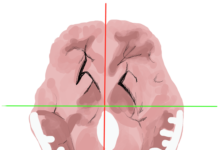by Carla Leal
Last week He Jiankui revealed the birth of the first babies to have ever been genetically edited.
The announcement has spurred a lot of debate regarding the accuracy of his claims since he has not provided the babies real names or any peer reviewed data.
This story will probably leave a mark in the history of genetic editing for no other reason than the sheer controversy that it has sparked.
What I find troublesome is that the most prevalent topic of discussion regarding his experiment is the ethical requirements that he bypassed during his pursuit. Ideally, we would be discussing the genetic editing itself rather than the creditability of the scientist attempting it.
For example, how leveled will the playing field really be when some humans have been genetically programmed to have the optimum chances at success.
Of course, then I start going in circles because to properly analyze his experiment and all of its implications, we need legitimate data and accurate conclusions. If we want to have meaningful conversations about advancements in the scientific community, distractions must be stripped away. A prime example was the cloning of Dolly, the sheep. When it was revealed that she was cloned from an adult somatic cell, a world-wide debate ensued before anyone really knew what was and wasn’t possible with cloning technology.
It’s clear from what He Jiankui did that scientists can find ways to pursue projects without going through the usual ethical scrutiny. If we want to encourage scientists to satisfy both their intellectual curiosity and the ethical standards in place, we should understand what could prevent them from wanting to do so.
We must ask ourselves what beliefs scientists hold regarding the impact of ethical processes on their work.
As important as it is to create processes that support innovation’s impact on society, they should also support the scientists’ pursuit. For example, a paper released by Paul Root Wolpe detailed several beliefs scientists often hold that make them feel challenged by ethics.
Among them, “Ethicists mostly say ‘No’ to new technologies,” “The public does not know what it wants,” “If I don’t do it, someone else will,” and “I’m not trained in ethics,”
What are our institutions doing to challenge these beliefs and integrate ethical questioning as a vital component of technological progress?
Many of us feel frustrated with how Juankui conducted his study because of our desire to have meaningful discussions about the technology that he leveraged.
His resistance to ethical scrutiny may have allowed him to pursue his endeavours quicker than usual but now it’s too difficult to take them seriously.






























